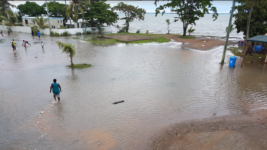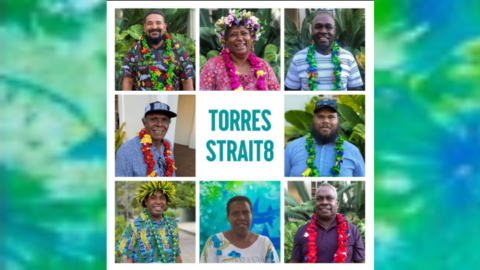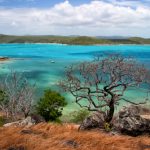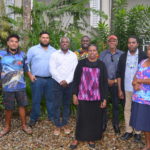UN Rules Australian Climate Inaction Is Violating Torres Strait Islander Rights

The UN Human Rights Commission found on 22 September, that the Australian government is indeed failing the peoples of the low-lying Torres Strait Islands, due to its refusal to take adequate action on the climate crisis, which in turn, is adversely impacting their lives and environment.
The 13 May 2019 complaint was lodged with the UN by a group known as the Torres Strait Eight, with the overriding issue being that the Australian government is failing “to take mitigation and adaptation measures to combat the effects of climate change”.
The Torres Strait Eight are Indigenous to four islands: Boigu, Poruma, Warraber and Masig. And they cited the Torres Strait Regional Authority, a government agency, which found in 10 to 15 years the islands will be uninhabitable, due to flooding, rising temperatures and loss of food sources.
The UNHRC found that our government is violating a number of the civil and political rights of the region’s peoples, as climate damage is already occurring, and despite multiple calls, no adaptation or minimisation measures have been taken and promises of future remedies are insufficient.
Climate eroding rights
The act of lodging the rights-based climate complaint against Australia was unprecedented, as was peoples of low-lying islands taking action against a nation-state, but the decision in favour of the people of Zenadh Kes-the Torres Strait is ground-breaking.
The complaint asserted the federal government was violating the rights of those living in Zenadh Kes under multiple articles of the International Covenant on Civil and Political Rights. And for its part, Australia claimed the alleged climate violations fall outside of the scope of the ICCPR.
The UNHRC found that Australia isn’t upholding the local people’s right to freedom from interference to privacy, family and home, under article 17 of the ICCPR, as it asserted that changing climate is already impacting these aspects of life and the government is doing nothing.
Article 27 of the ICCPR is also being undermined, as, due to their status as ethnic minorities in Australia, the various peoples of Zenadh Kes have a right to the preservation of cultural identity, which is already being “impaired by the reduced viability of their islands… owing to climate change”.
And a minority of the UNHRC found that the Torres Strait Islander peoples’ right to life, as protected under article 6, is being violated as well.
A planetary victory
In a recent opinion piece in the Herald, Kulkalgal man Yessie Mosby stated that the determination of the UNHRC was not only a win for the peoples of Zenadh Kes but it further carries great significance for First Peoples the world over.
The Masig local then poses the question as to whether the Albanese government will take action on this United Nations’ finding.
According to Mosby, that would involve “deep consultation with traditional owners” regarding adaption measures, such as seawalls, and a commitment to “100 percent renewable energy in Australia in the next 10 years”.
“We are celebrating in Zenadh Kes, but the fight is not over,” the Torres Strait Eight member concludes his piece. “We will continue to fight until our hearts stop ticking, and we know the next generation will pick up this baton and continue to run towards a brighter future.”








